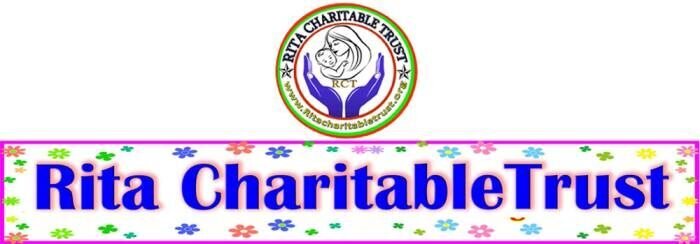What is Hotel Management Course ?
Hotel Management is a vast field that involves managing various aspects of hotel operations, including managing guests, staff, facilities, and finances. A Hotel Management Course is an educational program that trains students in the skills and knowledge required to become successful professionals in the hospitality industry. The course provides students with a comprehensive understanding of the various aspects of hotel management and equips them with the skills needed to succeed in the industry.

Hotel Management courses are offered at various levels, including diploma, undergraduate, postgraduate, and doctoral levels. The course duration varies from six months to five years, depending on the level of study.
Hotel Management courses cover a wide range of topics, including hotel operations, front office management, housekeeping, food and beverage management, human resource management, marketing and sales, and finance and accounting. Students learn about the principles and practices of hotel management, hotel maintenance and repair, hotel security, and legal issues in hotel operations.
Hotel Operations:
Hotel Operations is one of the fundamental aspects of Hotel Management courses. It deals with the day-to-day operations of a hotel, such as guest registration, room allocation, room service, and handling customer complaints. The course teaches students about the importance of maintaining a high level of customer service and ensuring customer satisfaction. Students learn about managing reservations, guest relations, and the importance of quality control in hotel operations.
Front Office Management:
Front office management is an essential aspect of Hotel Management courses. It involves managing the reception, reservation, and other front desk activities. Students learn about managing room rates, occupancy levels, and the importance of revenue management in the hotel industry. They also learn about effective communication skills, handling customer complaints, and managing guest arrivals and departures.
Housekeeping:
Housekeeping is an important aspect of Hotel Management courses. It involves the upkeep of guest rooms, public areas, and the hotel premises. Students learn about the importance of cleanliness and hygiene in a hotel, managing housekeeping staff, and the use of cleaning equipment and chemicals.
Food and Beverage Management:
Food and Beverage Management is another important aspect of Hotel Management courses. It involves managing the hotel’s food and beverage operations, including restaurants, bars, and banquets. Students learn about menu planning, food and beverage service, inventory management, and cost control. They also learn about the importance of providing a high-quality dining experience for guests.
Human Resource Management:
Human Resource Management is an important aspect of Hotel Management courses. It involves managing the hotel’s workforce, including hiring, training, and retaining employees. Students learn about the importance of employee motivation, performance management, and effective communication in the workplace.
Marketing and Sales:
Marketing and Sales is an important aspect of Hotel Management courses. It involves promoting the hotel to potential guests and building brand loyalty. Students learn about marketing strategies, advertising, public relations, and social media marketing. They also learn about sales techniques, revenue management, and the importance of customer relationship management.
Finance and Accounting:
Finance and Accounting is an important aspect of Hotel Management courses. It involves managing the hotel’s financial operations, including budgeting, forecasting, and financial analysis. Students learn about financial reporting, cost control, and revenue management. They also learn about the importance of understanding financial statements and using financial data to make informed decisions.
Hotel Management courses also provide students with practical training through internships and work placements. Students have the opportunity to gain hands-on experience in hotel operations and work alongside industry professionals. This practical experience is essential for students to develop the skills and knowledge required to succeed in the hotel industry.
In conclusion, Hotel Management courses provide students with a comprehensive understanding of the various aspects of hotel management. The course covers a wide range of topics, including hotel operations, front office management, housekeeping, food and beverage management, human resource management, marketing and sales, and finance and accounting.
What are the Subjects in Hotel Management Course?

3 / 3
Hotel Management is a specialized field of study that focuses on the management and operation of hotels, resorts, restaurants, and other hospitality businesses. The curriculum of a Hotel Management course is designed to equip students with the knowledge and skills necessary to succeed in the hospitality industry.
The subjects covered in a Hotel Management course can vary depending on the institution and the level of the course. Some common subjects that are covered in Hotel Management courses are:
- Hospitality Management: This subject covers the fundamental principles of hospitality management, including guest relations, hospitality marketing, and revenue management.
- Food and Beverage Management: This subject focuses on the management of food and beverage operations in hotels and restaurants, including menu planning, cost control, and service management.
- Accommodation Management: This subject covers the management of guest rooms and accommodation facilities in hotels, resorts, and other hospitality businesses.
- Front Office Management: This subject focuses on the management of front office operations, including reservations, guest registration, and check-in and check-out procedures.
- Housekeeping Management: This subject covers the management of housekeeping operations, including cleaning procedures, linen management, and maintenance of guest rooms.
- Tourism Management: This subject covers the principles of tourism management, including destination management, tour planning, and travel agency operations.
- Event Management: This subject focuses on the planning, organizing, and management of events, including conferences, meetings, and weddings.
- Marketing and Sales Management: This subject covers the principles of marketing and sales management in the hospitality industry, including marketing strategies, advertising, and promotions.
- Financial Management: This subject covers the financial management of hospitality businesses, including budgeting, accounting, and financial analysis.
- Human Resource Management: This subject covers the management of human resources in hospitality businesses, including recruitment, training, and performance management.
In addition to these subjects, Hotel Management courses may also cover topics such as hospitality law, ethics, and sustainability. Practical training and internships are also an essential part of Hotel Management courses, providing students with hands-on experience in various hospitality operations.
In conclusion, a Hotel Management course covers a range of subjects that are essential for success in the hospitality industry. The curriculum includes subjects such as hospitality management, food and beverage management, accommodation management, front office management, and tourism management. Hotel Management courses also provide practical training and internships to equip students with hands-on experience in hospitality operations.
For Beautician course Click Here







